#unrounded
Text
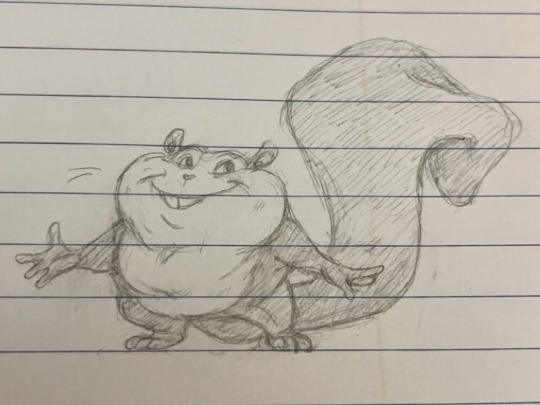
gives your meerca bones
39 notes
·
View notes
Text
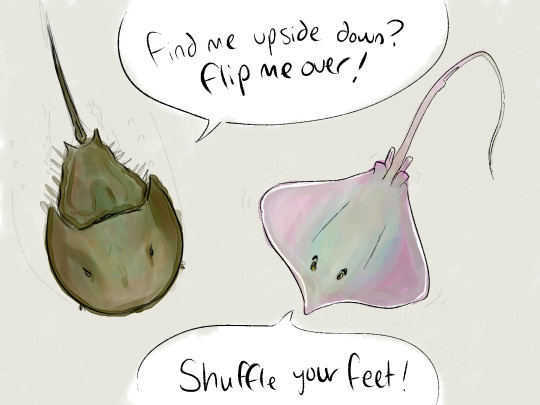
Local benthic buddies psa
#marine biology#horseshoe crab#stingray#:) fun doodle#Atlantic rays are always overlooked but they have such pretty iridescence....#i am still. adjusting to clip studio#i made the atlantic ray too unround. alas
46 notes
·
View notes
Text
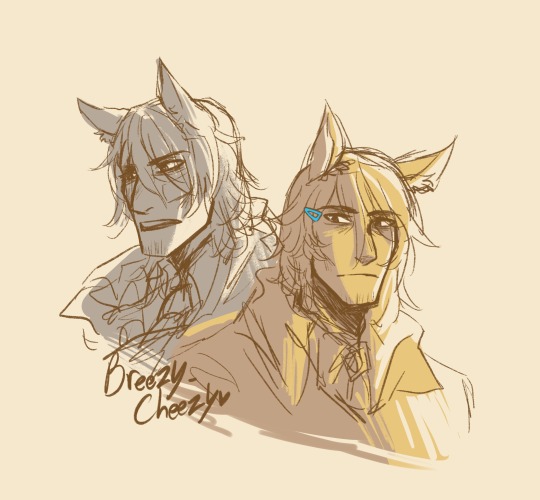

@forwantofacalling here's an ATTEMPT....angular honse.
(tbh I've been told I draw really round faces ALOT so it's hard for me to. See it. You do get messier blockier shading tho so WOO)
#my art#arknights#mlynar nearl#mlynar arknights#forwantofacalling#breezy replies#breezy babbles#I took some liberties....like his human ears KJHSDKLHFKSD#begone.#some stubble added....a little hair clip from a niece#yeahhhh tired horse man ilu#your hair is a battle hazard#ask meme#there was an attempt at unround face here
26 notes
·
View notes
Text
whyd they round everyones icons in notifs
66 notes
·
View notes
Text

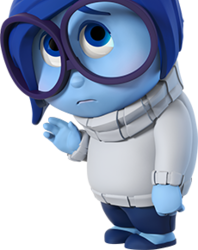
It looks like she lost weight
#maybe it's just the proportions but idk#they unrounded her 😭#inside out#inside out sadness#inside out fandom
23 notes
·
View notes
Text
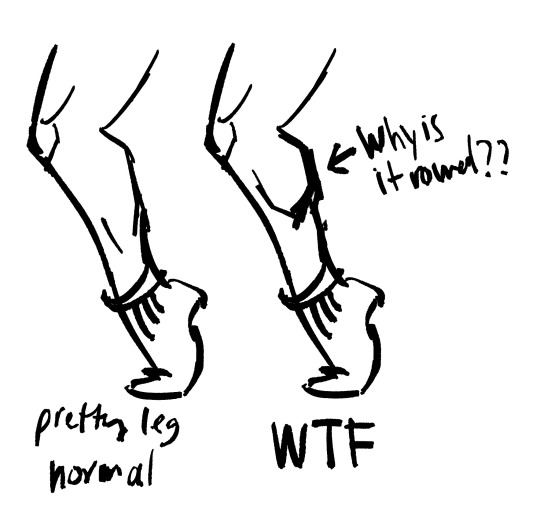
why do legs work so that ur lower muscle (idk what it’s called) looks radically different from each other
20 notes
·
View notes
Text
Apparently my brain really hates when names have A, U, and R in them, because without fail, every time I go to type Arthur my brain wants to spell it “Aurthur” or perhaps “Aurthr” and every time I go to type Marius my brain wants to type “Mauris” or maybe “Maurius” or maybe “Maurias” its unclear because I *usually* notice my mistake by the end because it’s clear to me those ending are wrong. Brain just really wants “AUR” together.
#if you see me misspell those names. that’s why#also im american so i default to pronouncing marius— hang on let me look up some IPA symbols#i pronounce is with this vowel ‘ɑ’ which is the open back unrounded vowel#where as they seem to pronounce it with the ‘e’ symbol which is an english (or at least am english) long a sound.#they say it like the name mary. like ‘marry us’#reasons english needs either more vowel symbols or accent marks#also i am aware the ipa vowels are fucked up but its still the best ive got because even in the same language there are accents and-#dialects and that makes examples hard. i also learned recently that british and australian english has actual long an short vowels.#i knew american english didnt have strut (inverted v) but i didnt know- i mean i kinda did because i had noticed it but like not fully-#understood it. anyway if youve read this far you should go watch dr geoff lindsey on youtube hes great#to be clear we have ‘long’ and ‘short’ vowel sounds in am english. but ‘long’ and ‘short’ are just names. the actual length that we say-#them is apparently basically the same. at least when compared with br and au english.#dr geoff lindsey *just* published a video about this. re: how br and au eng speakers say ‘two o’clock’ and ‘four o’clock’ as significantly-#different lengths. while am english speakers say them the same length. he also touches on a bunch of other interesting stuff#im not gonna fandom tag this i guess#i think its funny though that its arthur and marius since they are both voiced by the same person#oh also i think all IPA symbols should have special names like eng. schwa. and strut. rather than having to be called shit like ‘open back-#unrounded vowel.’ although i do realize that theres a fuck tonne of ipa symbols. i also think each of the names should have the sound it-#represents in it.#im autistic about pronunciation somehow. arent i supposed to be in the… *other* sciences. how did this happen?
4 notes
·
View notes
Text
landlord sent me notice that my rent is being raised at the end of the year with a very specific amount of cents at the end so I know before even checking that he raised it to the absolute maximum he could based on the current percentage cap <3 eat shit
#when they send you a very specific and unrounded number you know they're wrining as many pennies as legally possible out of you#shit **wringing ugh#it's still cheaper than what my neighbours are paying so it could be worse i guess#i am paying well below market rate for a 3 bedroom i have coworkers paying more than me for studio apartments#we need to abolish landlords ffs#reilly.txt
5 notes
·
View notes
Note
are you pronounced skloog or sklug
the former!
#well really i think of it as the unrounded equivalent like in tube#but https://en.wiktionary.org/wiki/Appendix:English_pronunciation doesn't even list this as a separate vowel sound#so whatever
2 notes
·
View notes
Text
Let’s see if lemon juice really is vanilla 2.0
Unrounded so percentages add up to 100
I will make this cake when the poll ends and post the results
I am op of the banana bread poll
4K notes
·
View notes
Text
Shoving a tampon up my wrecked teenage hole
Gostosas na piscina se pegando
very hot cam girl reaches orgasm
Bel Ami a Melhor
Me, masturbating, jerkin off, rubbin on my dick
Gym teen fucked hard in her tight pussy by her trainer
Foxy lesbian chick gets big shaved vagina screwed with toys
she so cute **
two cuties on periscope lez it up
Darkkos Black Cock Whores
#unprotrusive#turntale#priggisms#tubist#chief-justiceship#Heliogabalus#postfertilizations#preconsciously#biometrist#olivia#quadrisetose#uncannier#Dadayag#logarithmical#nominate#unstabbed#ski#theologoumena#nipperty-tipperty#unround
0 notes
Text
I was only a crescent moon, a curved half circle, curved in gaping, dolorous craving, bowed around emptiness, arms surrounding to meet nothing, a line unfinished, a life unrounded, a curve unfilled, suspended over the world, pale with unfullness,
Anaïs Nin, Incest: From a Journal of Love: The Unexpurgated Diary of Anaïs Nin 1932-1934
491 notes
·
View notes
Text
[HEAVY WIP] Snip snip snip, careful pewpaw!

Tweaked my brush a bit and unround it's much more fun to use, so I decided to finally start smth rendered with it nsnfsh
Here it is alongside a test I did to try it out hdfbdh


#More au posts#the brain rot is strong/silly#beetle's ramblings#beetle's art#crk au#pure vanilla cookie#shadow milk cookie#cookie run kingdom#All of my other wips begging to be finished while I start more lmao#I still have asks to draw out aughhh#also this is a redraw of a silly mlp comic cover sbcnxb
85 notes
·
View notes
Text
still not a forensic lip-reader but-
previously looked at what aziraphale was mouthing in the final fifteen, and whilst im not 100% certain on it, it gave me the hubris to look at the mouthing in 1941. because don't get me wrong, i know that crowley refers to "trust me" later on in the minisode, despite it not being voiced earlier on, and neil confirmed that that is indeed what aziraphale mouthed, but i... do not buy it.
full disclaimer, once again: not an expert in phonetics by any stretch, but was really into it when i was younger, and i have used it occasionally in my job. actual phonetics experts' input is most welcome!!!
so yeah, let's again begin with a capture of that moment, and slowed down to 0.9x, 0.8x, and 0.7x:
because whilst im not certain on exactly what aziraphale's saying, im really not convinced that his initial mouth movements bear much, if any, resemblance to what i would expect from "trust".
"trust" /tɹʌst/ is broken down into multiple movements, which i'll explain in four distinct stages: /tɹ/, /ʌ/, /s/ and /t/.
the first is the trickiest to explain, insomuch that broadly speaking, the /tɹ/ consonant cluster isn't spoken like one might think at first glance - instead of the 'tuh' and 'ruh' consonants merging exactly as they sound individually, it often evolves into a "ch" or "jj" cluster, and instead it sounds like 'chr' /tʃɹ/ (by the by, it happens often with the 'dr' cluster too!). so, in terms of what the mouth is actually doing during this, the tip of the tongue is placed up and resting behind the top teeth on the alveolar ridge (AvR), the teeth are closed, and the lips tense, or tighten, and become rounded. /ʃ/ is a voiceless fricative, and so there is some aspiration as the sound rolls into the /ɹ/. as this happens, the teeth/mouth opens, the lips relax/pull back, and the tongue falls from the AvR and pulls back to prepare voicing the vowel.
'uh' /ʌ/ is technically the open-mid back unrounded vowel; the tongue pulls towards the back of the mouth, it is not-quite-but-biased-towards the bottom of the mouth, and the lips are relaxed (ie. not rounded). so you expect to see a rather relaxed, open mouth with this vowel, just before it closes for the next consonant.
'ss' /s/ is another fricative, and so is aspirated. with this, the tongue tip instead moves forward from the back (where it sounded the /ʌ/ vowel), to behind the bottom row of teeth. the teeth are closed, and the lips are still relaxed/not rounded, resulting in the sibilant sound being made by passing air through the teeth.
to round off the word, we then move the tongue back up to the AvR, and a flick off the ridge/behind the teeth completes the hard /t/ sound. this abrupt movement stems the airflow from the /s/ sibilance (ie. a plosive). the teeth remain closed up until the flick, where they then quickly open for the plosive, and the lips remain relaxed.
and then (very quickly glossing over this for completeness) we have "me" /mi:/, which is formed by contact of the lips together, and the push of the 'ee' vowel behind it (being the close, frontal non-rounded vowel) which opens up the lips as it vocalises.
again... i personally dont see any of this movement in aziraphale's mouth during this scene:
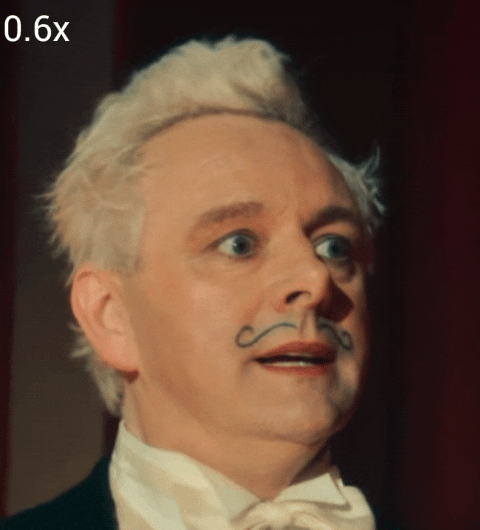
okay yeah, the lips come together and purse slightly, but that's honestly as far as i can see any resemblance between whatever he's saying, and "trust"? so what could he be saying instead?
it's difficult to say, especially towards the end of the above gif. his mouth moves so quickly, and i think it's a realistic possibility there's more than two words - maybe three, even four? i also think that just before the shot changes, he's not actually done speaking - it looks like he's cut off mid-sentence. and overall, aziraphale is obviously mouthing very 'sotto voce' (literally) - ie. to presumably avoid detection from the audience, his mouth movements are not as exaggerated as they would be in normal, overt speech... which affects how his mouth would normally move to form these words, and therefore how accurately we can read them.
to this end, like a madman, ive a) split the clip into three, and b) slowed them down ever further to 0.3x. first one:

aziraphale is really slow in forming this first word: its initially hesitant but then very deliberate. but the first thing we see is his jaw drop minutely (i think his jaw even pushes forward slightly?), and his neck tenses.
id also hazard that whilst obviously the quality is pants, and we can't see the placement of the front of his tongue, it's set behind his bottom teeth, and the rest is high and back in the mouth (ie. not behind the top teeth, on the AvR, where the 'tr' /tʃɹ/ cluster is formed).
after this, his lips then purse/round slightly, before relaxing again (again, not what would be indicated by the /ʌ/ vowel).
so all this to me suggests that a) it begins with a voiced sound (the neck tensing implies engagement of the vocal chords), and b) it transitions into a closed, rounded vowel, set in the back. the most logical construction that fits this, for me, is 'you' - /ju:/.
the rest of what he's mouthing? honestly god only knows what's going on here, but im gonna take a stab at it. i think it can be broken down into another two words at least, maybe even three with the middle one being a very short vowel. the issue is that the clip cuts off sharply when the shot changes, which makes it difficult to see how aziraphale's mouth results at the end of the whole thing*.
but let's start from where we left off with the /u:/ sound - where the lips are pursed:

two thoughts here:
1) after aziraphale says 'you', his mouth just simply relaxes, and doesn't say anything. it's a very quick rest, and the movements that follow it are even quicker, making it (for me) difficult to read.
alternatively, 2) he is saying something. so breaking this movement down, as his mouth relaxes from 'oo' /u:/, and his lips pull back from that rounded position, i think two things happen: his lips pull back, opening the mouth a fraction, and his tongue pulls down and slightly back. both of which could possibly suggest an /h/ sound, which is breathy and voiceless, transitioning into a vowel which in this case is most likely in this case to be open, or near-open, and unrounded - in which case, /æ/ would make sense.
for the next sound, this is where it's not very clear at all - im tentatively saying it's a /v/, which is a labiodental fricative phoneme, meaning that it is primarily formed when the top teeth make contact with the bottom lip. aziraphale's mouth certainly closes back up from the open position, but it's not entirely clear whether his teeth do contact his lip. that being said, if aziraphale is saying anything here, completing the word with the /v/ is logical - 'have', /hæv/.
okay deep breath, we're onto the last couple of movements now-
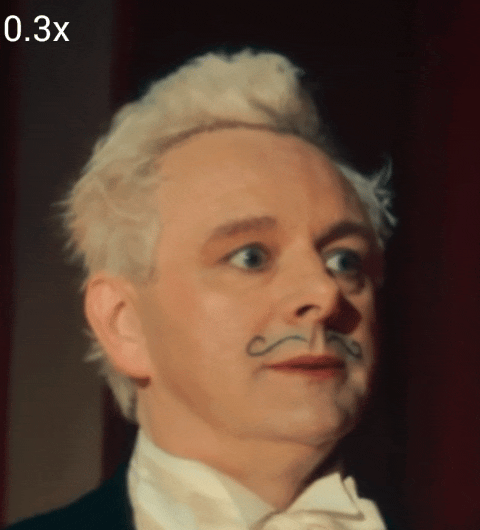
im going to scream, this last bit is so difficult-
one thing is that i do think, is that aziraphale is saying two words here: watching closely, his lips part so, so minutely before coming together again, and forming the start* of the next word. most likely? that tiny little word he's forming in that small, minute gap is 'a', which aziraphale has previously pronounced in the show (and i think he is here, too) as 'uh', /ʌ/.
after this, his lips return to contact, before parting again into the last movement that we see - the shot changes, and the word is cut off (so far as i can tell)*. but if you return to the 0.6x gif up above, you can see that all of this movement is so quick that im definitely having trouble being certain on what the last one is. because all of the lip-presses are in quick succession to each other, i think he might be forming a 'ww' consonant - /w/, but can't be sure.
so, possibly: "you have a w-", /ju: hæv ʌ w/
so look - altogether, this is a massive amount of unhinged speculation and, as ive said previously, i am nowhere near a professional at this (fancy terminology is all well and good, but i was just really into linguistics and phonetics when i was younger). im sure i will be eating humble pie at some point over this but... i really don't think, regardless of what he is actually saying, that he is saying 'trust me'.
and in a way - it's the implications of it that are more interesting to me: because if aziraphale doesn't say 'trust me' in this bit, but both he and crowley acknowledge that he says it at some point, when does he say it?
#good omens#1941 spec#flashback meta#this is probably the most unhinged meta/spec ive written to date. and thats saying A Lot#aziraphale meta
40 notes
·
View notes
Text
L’alphabet phonétique
Les voyelles
[a] open front unrounded vowel - cinéma (cinema, m); hat
[ɑ] open back unrounded vowel - château (castle, m); hot
[e] close-mid front unrounded vowel - clé (key, f); may
[ɛ] open-mid front unrounded vowel - père (father, m), chêne (oak, m); bed
[ə] mid central vowel/schwa - jeu (game, m); bird
[i] close front unrounded vowel - souris (mouse, f); free
[o] close-mid back rounded vowel - rose (rose, f); UK yawn
[ɔ] open-mid back rounded vowel - océan (ocean, m); thought
[ø] close-mid front rounded vowel - jeudi (thursday)
[œ] open-mid front rounded vowel - peur (fear, f)
[u] close back rounded vowel - chou (cabbage, m); boot
[y] close front rounded vowel - tu (you); UK few
This vowel diagram shows the inside of the throat from the left side (pronounce /i/ "eee" and /ɑ/ "aaa" to feel the difference). Antérieur: front, postérieur: back, aperture: opening of the lips.
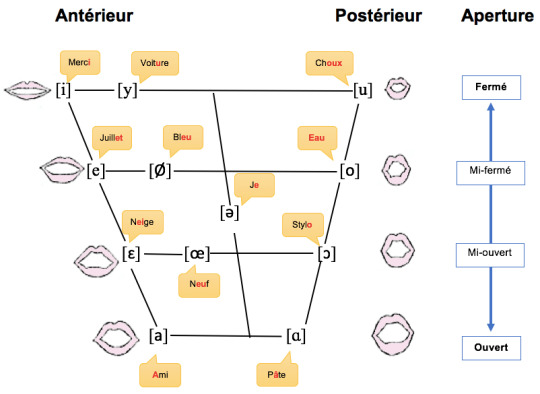
Les voyelles nasales (when followed by a consonant except -h- or ending a word)
[ɑ̃] > am, an, (é)en, em, aon - temps (time, m)
[ɛ̃] > aim, ain, eim, ein, em, (i)en, im, in, um, un, ym, yn - pain (bread, m)
[ɔ̃] > om, on - ombre (shadow, f), bonjour (hello)
[œ̃] > um, un - humble, un (one, m); dying, turning into [ɛ̃]
N.B. When a nasal sound is produced, despite being made of two letters, they are to be pronounced as their own sound: in Bonjour, the /o/ and the /n/ shouldn't be heard at all since they are followed by the consonant /j/, as opposed to the usual dragging of /o/ then /n/ like in Bonne journée.
Les semi-voyelles
[j] voiced palatal approximant - lieu (place, m); you
[ɥ] voiced labial–palatal approximant - huile (oil, f); wall
[w] voiced labial–velar approximant - oui (yes); witch
Les consonnes
[b] voiced bilabial plosive - bête (beast, f)
[d] voiced dental and alveolar plosive - déjeuner (lunch, m)
[f] voiceless labiodental fricative - faim (hunger, f)
[g] voiced velar plosive - gâteau (cake, m)
[ʒ] voiced postalveolar fricative - ange (angel, m); vision
[k] voiceless velar plosive - cadeau (gift, m)
[l] voiced apical alveolar approximant - lait (milk, m)
[p] voiceless bilabial plosive - pain (bread, m)
[ʁ] voiced uvular fricative - roi (king, m)
[s] voiceless alveolar fricative - sel (salt, m); nonsense
[t] voiceless denti-alveolar plosive - table (table, f)
[v] voiced labiodental fricative - violon (violin, m)
[z] voiced alveolar fricative - maison (house, f)
[ʃ] voiceless postalveolar fricative - chocolat (chocolate, m)
Les consonnes nasales
[m] voiced bilabial nasal - miel (honey, m)
[n] voiced denti-alveolar nasal - nez (nose, m)
[ɲ] voiced palatal nasal - montagne (mountain, f)
[ŋ] voiced velar nasal - connexion (connection, f); sing
Voiced sounds are those that make our vocal chords vibrate when they are produced; voiceless sounds are produced from air passing through the mouth at different points. Fricatives are consonants with the characteristic that when they are produced, air escaped through a small passage and make a hissing sound; plosives are a type of consonant produced by forming a complete obstruction to the flow air out of the mouth.
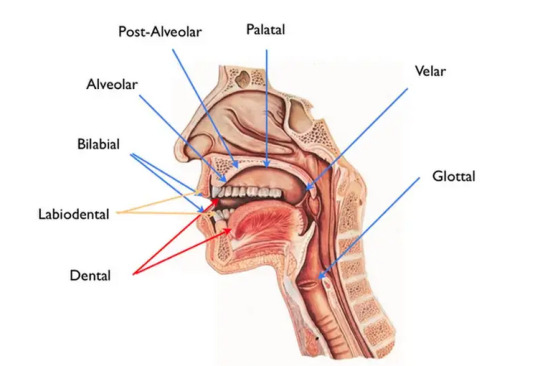
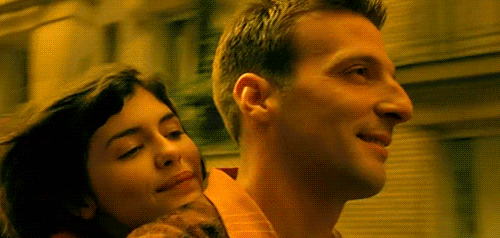
Movie: Le fabuleux destin d'Amélie Poulain - Jean-Pierre Jeunet, 2001
359 notes
·
View notes
Text
Articulatory Phonetics - 调音语音学
字音 zǐyīn - (n.) consonant (also 福音 fǔyīn)
调音部位diàoyīnbùwèi - (n.) place of articulation (also 发音部位)
双唇音 shuāngchúnyīn - (n.) bilabial sound
唇齿音/齿唇音 chúnchǐyīn/chǐchúnyīn - (n.) labiodental sound
齿音 chǐyīn - (n.) dental sound
齿龈音 chǐyínyīn - (n.) alveolar sound
龈腭音 yín'èyīn - (n.) alveolo-palatal sound
卷舌音 juǎnshéyīn - (n.) retroflex sound
腭音 èyīn - (n.) palatal sound
软腭音 ruǎn'èyīn - (n.) velar sound
小舌音 xiǎoshéyīn - (n.) uvular sound
咽音 yānyīn - (n.) pharyngeal sound
声门音/喉音 shēngményīn/hóuyīn - (n.) glottal sound
调音方法 diàoyīnfāngfǎ - (n.) manner of articulation
阻碍音 zǔ'àiyīn - (n.) obstruent
塞音 sèyīn - (n.) stop, plosive
擦音 cāyīn - (n.) fricative
咝音 sīyīn - (n.) sibilant
塞擦音 sècāyīn - (n.) affricate
响音 xiǎngyīn - (n.) sonorant
鼻音 bíyīn - (n.) nasal
流音 liúyīn - (n.) liquid
边音 biānyīn - (n.) lateral
近音 jìnyīn - (n.) approximant
半元音bànyuányīn - (n.) semivowel, glide
颤音 chànyīn - (n.) trill
弹音 tányīn - (n.) tap
闪音 shǎnyīn - (n.) flap
发声态 fāshēngtài - (n.) phonation
清音 qīngyīn - (n.) voiceless sound
浊音 zhuóyīn (n.) voiced sound
送气音 sòngqìyīn - (n.) aspirated sound
不送气音 búsòngqìyīn - (n.) unaspirated sound (also 非送气音)
发声起始时间 fāshēngqǐshǐshíjiān - (n.) voice-onset time (VOT)
元音 yuányīn - (n.) vowel
元音高度 yuányīn gāodù - (n.) vowel height
元音舌位 yuányīn shéwèi - (n.) vowel backness
前元音 qiányuányīn - (n.) front vowel
央元音 yāngyuányīn - (n.) central vowel
后元音 hòuyuányīn - (n.) back vowel
闭元音 bìyuányīn - (n.) close vowel
次闭元音 cìbìyuányīn - (n.) near-close vowel
半闭元音 bànbìyuányīn - (n.) close-mid vowel
中元音 zhōngyuányīn - (n.) mid vowel
半开元音 bànkāiyuányīn - (n.) open-mid vowel
次开元音 cìkāiyuányīn - (n.) near-open vowel
开元音 kāiyuányīn - (n.) open vowel
圆唇元音 yuánchúnyuányīn- (n.) rounded vowel
不圆唇元音 bùyuánchúnyuányīn - (n.) unrounded vowel
鼻化元音 bíhuāyuányīn - (n.) nasal vowel
声调/声 shēngdiào/shēng - (n.) tone
阴平声 yīnpíngshēng - (n.) high level tone
阳平声 yángpíngshēng - (n.) rising tone
上声 shǎngshēng (also shàngshēng) - (n.) falling-rising tone
去声 qùshēng - (n.) falling tone
轻声 qīngshēng - (n.) neutral tone
声道 shēngdào - (n.) vocal tract
发音器官 fāyīnqìguān - (n.) articulators, speech organs
肺脏 fèizàng - (n.) lungs
喉 hóu - (n.) larynx
声带 shēngdài - (n.) vocal folds
振动 zhèndòng - (v.) vibrate
口腔 kǒuqiāng - (n.) oral cavity
颚 è - (n.) jaw
鼻腔 bíqiāng - (n.) nasal cavity
舌根 shégēn - (n.) tongue root
舌面 shémiàn - (n.) tongue body (dorsum) (also 舌背)
舌尖 shéjiān - (n.) tongue tip
We can also divide the tongue like this: 舌前部,舌中部,舌后部
气流机制 qìliújīzhì - (n.) airstream mechanism
外呼音 wàihūyīn - (n.) egressive sound
内吸音 nèixīyīn - (n.) ingressive sound
肺部外呼音 fèibùwàihūyīn - (n.) pulmonic egressive sound
声门外呼音 shēngménwàihūyīn - (n.) glottalic egressive sound
挤喉音 jǐhóuyīn - (n.) ejective consonant
声门内吸音 shēngménnèixīyīn - (n.) glottalic ingressive sound
内爆音 nèibàoyīn - (n.) implosive consonant
舌内吸音 shénèixīyīn - (n.) lingual (velaric) ingressive sound
搭嘴音 dāzuǐyīn - (n.) click consonant
声源-滤波器理论 shēngyuán-lǜbōqì lǐlùn - (n.) source-filter theory
#I’ve been staring at this in my drafts for a while#idk why I made it#just thought it would be cool to know all this eventually and be able to talk abt linguistics in mandarin#again I did my best to reference articles and research papers that had these terms just so I could confirm that at least someone uses it#语言学词汇#语音学#中文#汉语#vocab#langblr#and some of these def have variations#mandarin studyblr#mandarin#studyblr#mandarin langblr#I think next step is maybe post about this writing full sentences?
169 notes
·
View notes